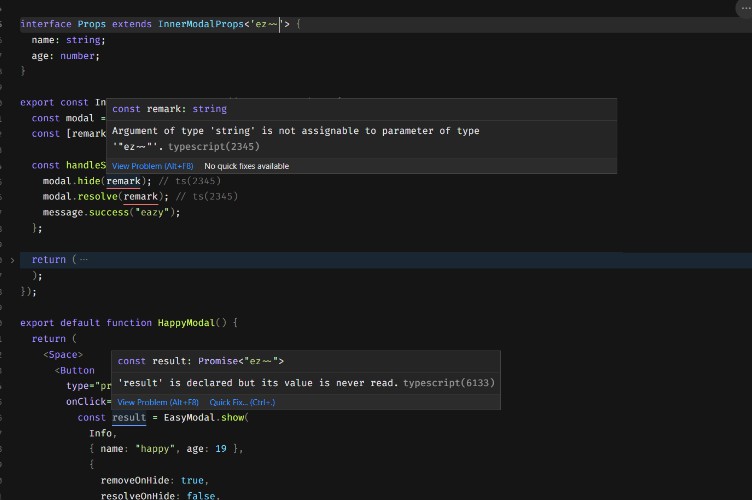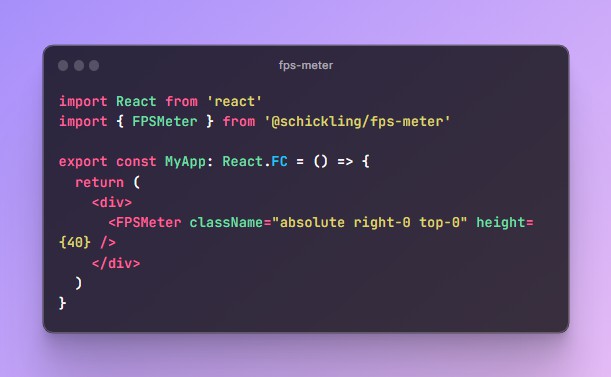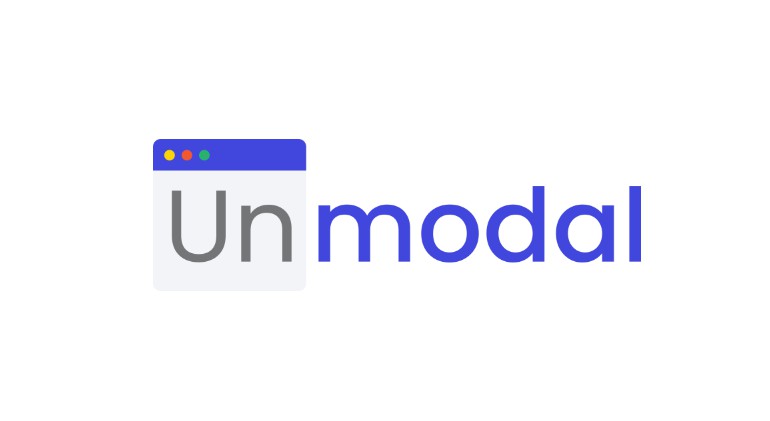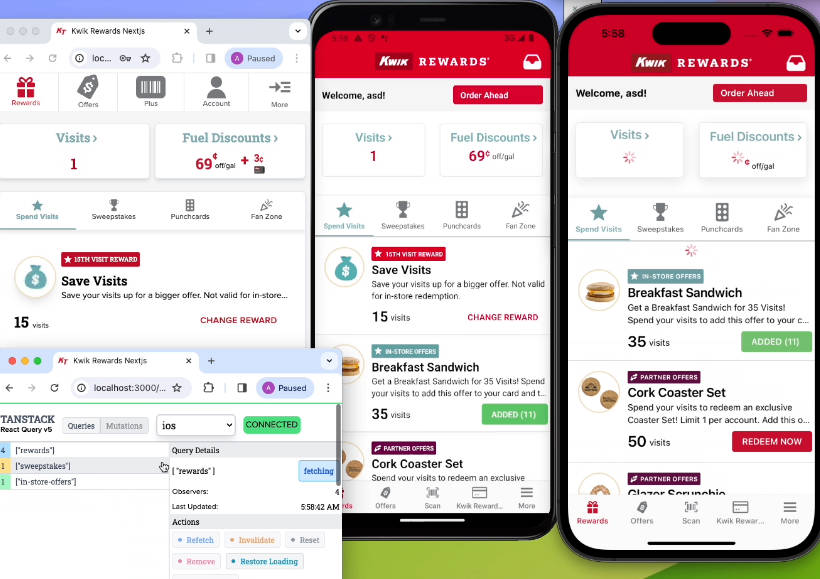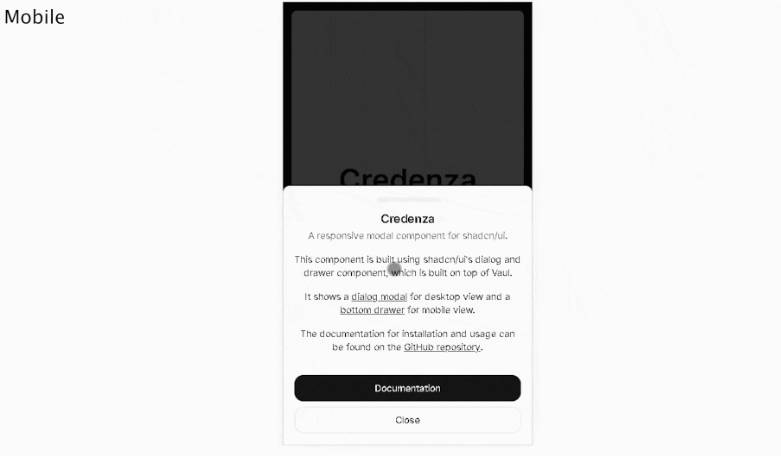Ez Modal
This is a easy-to-use modal state management of React. It use React’s context.
✨ Feature
- Based on Promise, separate modal and ohter code.
- Supports hook and props injection.
- Supports return value type inference,elevate the development experience.
- Supports >=React 16.8 version.
- Supports config (When modal is hidden, Whether to remove and resolve by default)
- Small size(~1kb after gzip)、easy access non-intrusive、support any UI library.
🔨 Let me see
📦 install
# with yarn
yarn add ez-modal-react
# or with npm
npm install ez-modal-react
🚀 Examples
- use EasyModal Provider
import EasyModal from 'ez-modal-react';
function App() {/* ... */}
ReactDOM.render(
<EasyModal.Provider> // wrap your main Componet
<App />
</EasyModal.Provider>
document.getElementById('root'),
);
- create modal
import easyModal from 'ez-modal-react';
const InfoModal = EazyModal.create((props) => (
<Modal open={props.visible} onOk={props.hide} onCancel={props.hide}></Modal>
));
- anywhere use it
import easyModal from 'ez-modal-react';
import InfoModal from './InfoModal';
EasyModal.show(InfoModal, { name: 'foo' }).then((resolve) => {
console.log(resolve);
});
- That’s the core functionality,Here’s the better experience
☀️ More
- Inferred the return value type
Your Component Props should extends InnerModalProps,to enable it to derive the correct return value type
import EasyModal, { InnerModalProps } from 'ez-modal-react';
+ interface IProps extends InnerModalProps<'modal'/* here*/> {
+ age: number;
+ name: string;
+ }
export const InfoModal = EasyModal.create(
+ (props: Props) => {
return (
<Modal
title="Hello"
open={props.visible}
onOk={() => {
+ props.hide(); //(property) hide: (result: 'modal') => void ts(2554)
}}
onCancel={() => {
+ props.hide(null); // accepts null as a parameter,this makes it not have to worry about type errors, which is great to use
}}
>
<h1>{props.age}</h1>
</Modal>
);
});
+ // "The property 'age' is missing in the type '{ name: string; }'... ts(2345)"
EasyModal.show(InfoModal, { name: 'foo' }).then((resolve) => {
console.log(resolve); // if everything is in order. we will get 'modal'
});
+ interface IProps extends InnerModalProps<'modal'> {
+ age: number;
+ name: string;
+ }
export const InfoModal = EasyModal.create((props: Props) => {
+ const modal = useModal<Props /* here */>();
console.log(modal.props) // current component's props
+ modal.hide(); // (property) hide: (result: 'modal') => void ts(2554)
return <Moda>/*...*/</Moda>;
});
- When the modal is hidden, it is remove by default.
- When the modal is hidden, it is resolve by default.
- Meet the vast majority of scenarios. EasyModal also provides a reject method.
- How to change the default behavior: pass in the third parameter in the open method.
EasyModal.open(Component, {},
+ config:{
+ resolveOnHide:false,
+ removeOnHide:false,
+ }
);
📚 API
const CreatedModal = EasyModal.create(Component); // create EasyModal Modal; return EasyModalHOC
const result = EasyModal.open(CreatedModal, Props); // open CreatedModal Modal; return promise
const ______ = EasyModal.hide(CreatedModal); // hide CreatedModal Modal; return undefined
props; // Within a component, EasyModal injects additional properties in addition to the user's own parameters
const modal = useModal(); // in CreatedModal useModal;return same as props
type props | modal :
{
id: string; // current Modal id
visible: boolean; // current Modal open state
hide: function; // hidden current Modal fn
remove: function; // remove current Modal fn
resolve: function;
reject: function;
...
}
- About the difference between useModal and injected props
- The props and useModal() return values obtained inside the component have the same properties and methods>
- The ‘hide’ ‘resolve’ method of the useModal() return value does not have type inference by default like most hooks. You must explicitly pass the props type of the current component to the useModal method.
btw, That’s exactly why I did this project, I like to use props directly, but nice-modal-react can’t provide it
🎮 Codesandbox Demo
⭐ source of inspiration
- fhd Inc @xpf
- nice-modal-react
